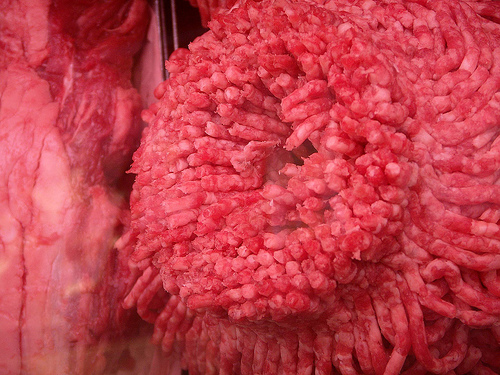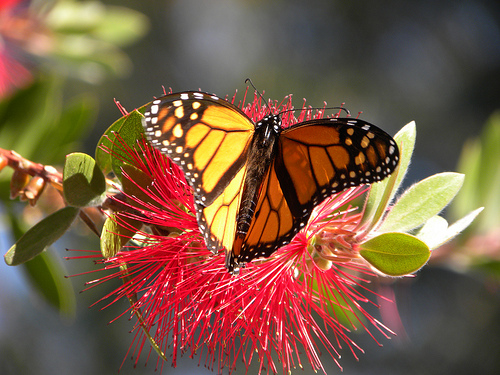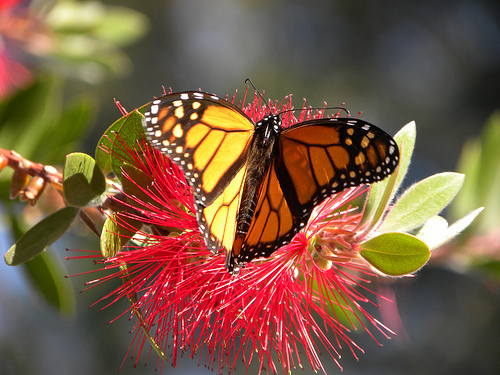We’re all familiar with Big Ag’s bad reputation of picking on small-scale and organic farmers. Now Monsanto and its cronies are beating up an even more innocuous set of victims: beautiful, defenseless monarch butterflies.
A new study from the University of Minnesota and Iowa State University fingers Monsanto’s genetically modified corn and soybean crops as the culprit behind monarch butterflies’ declining populations.
Between 1999 and 2010, the same period in which so-called GMO crops became the norm for farmers, the number of monarch eggs declined by an estimated 81 percent across the Midwest, the researchers say.
About 94 percent of U.S. soybean farmers and 72 percent of corn farmers use Monsanto’s Roundup Ready crops. All that genetically altered ag kills butterflies, researchers say, by decimating their prime breeding zones: milkweed plants on farms. Roundup Ready corn and soy are designed to be resistant to the herbicide Roundup. Because their crops are immune, farmers spray Roundup indiscriminately to kill off weeds — including milkweed — and monarch butterflies wind up paying the ultimate price.
Researchers say that fewer and fewer monarchs are making their annual migration to Mexico, reflecting their lower birth rates in the U.S.
This year, according to a report released Thursday, the butterflies occupied seven acres of trees in their refuge west of Mexico City — 28 percent less than last year and a fraction of the 45 acres they occupied in 1996, a peak year.
But lucky for butterflies and their human admirers, it’s not all bad news. While monarchs prefer settling down in milkweed plants in farmland, the butterflies can also lay their eggs in milkweed housed in pastures, gardens, and along roadsides. In fact, one of the study’s researchers says that at this rate, if we’re going to save monarchs, we may need to make it a national priority to cultivate milkweed outside of farms. So … anyone up for some guerilla gardening?





